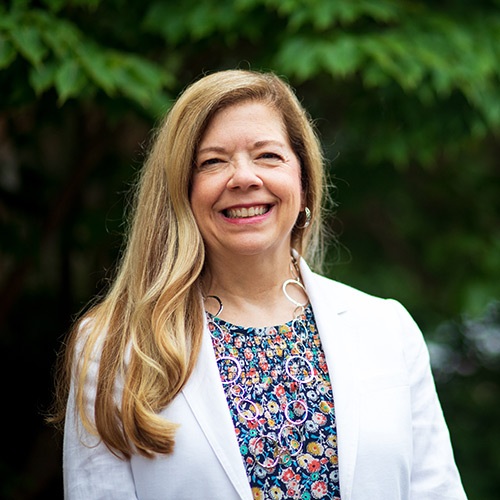
My name is Emily Bonds Davey, and I recently began as the director of the externship program after a 30-year career in law firm private practice in Birmingham, Alabama. My practice focused on defending individuals and companies in civil litigation. I also became a trained mediator and arbitrator. My purpose at Cumberland School of Law is to build a robust array of externship opportunities for students so they can obtain the skills necessary to build a legal career after graduation.
The externship program provides class credit to Cumberland students who work outside of the classroom. Externships encompass everything from working with a state or federal court judge, in a private law firm, with a nonprofit and more. The possibilities are endless.
Here’s how it works:
Students entering their second or third year seek out an opportunity to work with a supervising attorney during the semester. The student commits to working at least 120 hours over the semester (generally 10-15 hours a week). The outside lawyer commits to supervising the extern and providing them assignments that reflect that lawyer’s work and to include the student in matters relating to his or her practice. I agree to oversee the students and the supervisors.
If that semester is the student’s first opportunity to extern for class credit, then the student also takes a one-hour seminar to explore some of the practicalities of practicing law: billing/ timekeeping, ethics, problem solving, research and writing, professional development and networking. The student receives two hours of credit for the externship work and one hour for the seminar.
How are students selected?
I advertise externship opportunities to the students regularly with information regarding the requirements to be selected. Students typically apply via email with a cover letter and resume. Externship sites interview the students who apply and select the student to serve as an extern. I coordinate the externship, including the signing of a Memorandum of Understanding between the student, the supervising lawyer and Cumberland School of Law. I regularly communicate with the supervising lawyer during the externship and mentor the students through the seminar.
Can students get paid?
Yes, students can receive both pay and course credit for an externship. Of course, there are many externships that do not have funding (nonprofit entities, judges’ offices), and students are very interested in those opportunities for the experience they provide and networking for future jobs.
Why are externships so important?
We all know that the legal market is ever-changing. COVID-19, law firm layoffs, changing technology and the delivery of legal services means that students need all the experience they can get to successfully transition from student to full-time lawyer. In fact, many skills necessary to be practice-ready can only be gained from experiential learning opportunities. These skills include how to communicate, how to act professionally and ethically, how to be a self-starter, and how to be a problem-solver. Externships are just one way that students can develop these skills.
What are my goals for the program?
My goals for the externship program include expanding the number of opportunities available to our students. In addition, I hope to engage our alumni to offer virtual externships during the semester. Finally, I hope to develop a robust summer program that includes externships in Washington, D.C., and abroad.
What can you do?
We need Cumberland alumni to volunteer and offer their workplaces as training grounds for our law students. If you are interested in being a part of this program, please email me at ebonds1@samford.edu. I look forward to the opportunity to serve you and our students as we grow this program.

